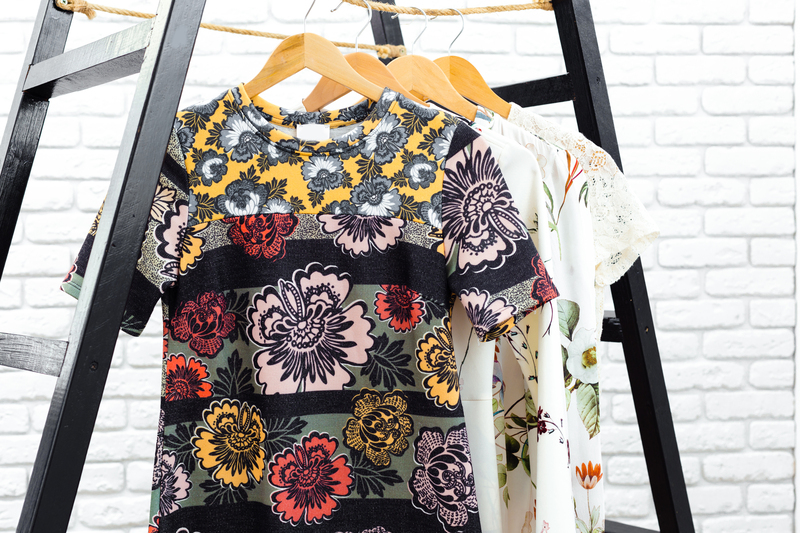All You Need to Know About Mini Skips
Mini skips have become increasingly popular in recent years due to their convenience, affordability, and versatility. Whether you're managing a home renovation, garden clearance, or a small commercial project, knowing when and how to use a mini skip can make your waste disposal process much more efficient. This comprehensive article will cover everything you need to know about mini skips--from types and sizes to costs, benefits, and tips for hiring. Read on to become an expert in choosing and using mini skips for your waste management needs.
What Are Mini Skips?
In simple terms, a mini skip is a small, open-topped waste container designed for temporary use. These containers are delivered to your location, where you can fill them with non-hazardous waste. Once full, the skip hire company collects and responsibly disposes of the waste. Mini skips are especially suitable for jobs that produce a small to moderate volume of waste, saving you multiple trips to the local recycling center.
Typical Sizes of Mini Skips
One of the main advantages of mini skips is their compact size. Here are the most common options:
- 2-yard mini skip: Holds approximately 20-30 bin bags. Perfect for small DIY tasks, decluttering, or garden clear-outs.
- 3-yard mini skip: Holds around 30-40 bin bags. Ideal for slightly larger domestic jobs, bathroom or kitchen renovations, or small business clear-ups.
- 4-yard skip (Midi skip): Occasionally called "mini skips," these are slightly larger and can handle broader projects.
*Always check with your local skip hire provider for exact dimensions and volumes, as sizes can vary slightly.

When Should You Use a Mini Skip?
Wondering if a mini skip hire service is right for your project? Here are some common scenarios where mini skips are the perfect solution:
- Home Renovations: If you're updating a bathroom, kitchen, or spare room, a mini skip easily accommodates old fittings, tiles, and plasterboard.
- Garden Waste Clearance: For garden tidy-ups, mini skips handle grass cuttings, shrubs, soil (limited), and small branches without taking up much driveway space.
- Moving House: De-cluttering before a move? Mini skips provide a quick way to dispose of old furniture, clothes, and knick-knacks.
- Small Commercial Jobs: Offices, shops, and local businesses can use mini skips for general waste, paperwork, and small fixture removal.
- Landscaping Projects: Stones, old turf, and compact waste fit easily into mini skips during landscaping work.
Benefits of Using Mini Skips
There are multiple compelling reasons to consider mini skips for waste removal:
- Space Efficient: Mini skips are designed for easy placement, even in tight drives or streets where larger skips won't fit.
- Cost-Effective: Mini skips offer an affordable alternative for small-scale projects, ensuring you don't overpay for unused capacity.
- Environmentally Friendly: Responsible skip hire companies recycle a significant percentage of the waste collected, reducing landfill contribution.
- Convenience: Delivered and collected at your location, mini skips save you time, effort, and hassle.
- Flexibility: Perfect for short-term needs--most companies offer flexible hire durations to suit your project timeline.
Drawbacks to Consider
While mini skip hire services are highly beneficial, they may not be suitable for every situation. Here are a few limitations:
- Limited Capacity: Mini skips can't accommodate bulkier waste from large-scale demolitions or construction work.
- Prohibited Items: Items like asbestos, paint, tires, and electrical goods are not allowed in mini skips.
- Permit Requirements: If the mini skip needs to be placed on a public road, you might need a skip hire permit from your local council.
What Can You Put in a Mini Skip?
Knowing what you can and cannot put in a mini skip is vital to avoid additional charges or refusal of waste pickup. Here's a breakdown:
Acceptable Waste:
- General household rubbish
- Bricks, tiles, and rubble (within weight limits)
- Old furniture (except mattresses, unless confirmed)
- Wood and timber
- Paper and cardboard
- Garden waste (leaves, branches, grass)
- Plastics and packaging
Prohibited Waste:
- Asbestos
- Batteries
- Paints and solvents
- Electrical appliances (fridges, TVs, computers)
- Chemicals or hazardous waste
- Gas bottles and cylinders
- Tyres
Always consult your skip hire provider for a comprehensive list of prohibited items. Incorrect waste can result in fines or refusal of collection.
How to Choose the Right Mini Skip
With different mini skip sizes and types available, consider the following factors before booking:
- Type and Amount of Waste: Estimate the waste volume. Overfilling skips is illegal and dangerous.
- Location: Will you place it on your drive, garden, or a public road? If on public land, you'll likely need a skip hire permit.
- Timeline: Decide how long you need the skip. Most companies offer hires from a few days to a fortnight.
- Access Needs: Consider clearance and driveway width for delivery trucks and skip placement.
- Budget: Multi-size options help you avoid overpaying. Choosing the right size will save you money.
What Does Mini Skip Hire Cost?
Mini skip prices vary depending on several factors, including your location (prices are higher in large cities), duration of hire, skip size, and potential permit fees.
- 2-yard skip: Ranges from ?60 to ?120 for a standard 7-day hire.
- 3-yard skip: Typically falls between ?90 and ?140.
- Permit fees: If you need to place your skip on a public highway, most councils charge an additional ?20-?60 depending on location.
Always request a full quote that includes delivery, collection, and disposal to avoid hidden costs.
Tips for Getting the Best Mini Skip Hire Deal
- Compare several local skip hire companies for rates and reviews.
- Book in advance--last-minute hires may attract surcharges.
- Ask about recycling rates and company waste disposal policies.
- Check if VAT is included in the quoted price.
How to Book and Prepare for Mini Skip Delivery
Booking a mini skip couldn't be easier. Simply call or use an online booking form of your chosen provider and provide details on:
- The type and amount of waste being disposed of
- Skip size needed (ask for advice if unsure)
- Placement location (driveway, road, or garden)
- Your desired hire dates
*Preparation tips* for skip delivery:
- Clear space: Ensure the area for the skip is accessible and free of parked cars, low-hanging branches, or obstacles.
- Protect your surface: Place boards or plywood down if you're worried about driveways or lawns being damaged.
- Obtain permits: If you need a roadside skip, arrange council permits in advance--your skip hire company may do this for you.
Maximizing Mini Skip Efficiency: Loading Tips
Proper loading ensures you get the best value from your mini skip hire and avoid additional charges. Follow these expert tips:
- Break down bulky items to save space--disassemble furniture and cut branches where possible.
- Load flat items first, such as doors or timber boards, to create a stable base.
- Fill gaps with small items: Use soft materials like clothes, leaves, or packaging to fill voids between bulkier items.
- Do not overfill: Skips must not exceed the fill line. Overfilled skips are often refused collection or incur extra charges.
- Group similar waste: Some providers offer discounts if your load is 100% recyclable--ask about special rates for "clean" loads.
Mini Skips and Sustainable Waste Management
Utilizing a mini skip hire service is a responsible method for disposing of waste. Leading providers prioritize environmentally friendly practices such as:
- Segregating recyclable materials from general waste at their depot
- Recovering metals, wood, plastics, and green waste for recycling
- Promoting ethical waste disposal and aiming for zero landfill policies
By hiring from reputable, local companies with strong recycling rates, you're also supporting your area's sustainability efforts.

Frequently Asked Questions About Mini Skips
Q: Can a mini skip be placed on the road?
A: Yes, but you will need a council permit, and the skip must be properly signed and lit. Your hire company can arrange these for you for an additional fee.
Q: How long can I keep a mini skip?
A: Standard hire periods are 7-14 days, but most companies offer extensions for a small extra charge. Check company policy when booking.
Q: Can I mix different waste types in a mini skip?
A: General and inert wastes can usually be combined. However, for hazardous or specialist waste, separate collection is required.
Q: What happens to the waste after collection?
A: Most skip hire firms sort and recycle as much as possible at processing centers. Items are divided into metals, wood, rubble, plastics, and sent to appropriate recycling facilities.
Q: Can I hire multiple mini skips at once?
A: Absolutely. Larger projects often benefit from hiring more than one skip--just ensure you have enough access and permission if placing skips on the road.
Conclusion: Are Mini Skips Right for You?
Mini skips offer a smart, sustainable, and cost-effective waste management solution for homeowners, small business owners, and landlords. Their compact size and versatility make them suitable for a wide variety of domestic and light commercial projects. Remember to always source your mini skip hire from a reputable provider who follows environmentally friendly practices and offers transparent pricing.
If you have a small-to-medium waste disposal job, booking a mini skip can save you time, reduce your environmental impact, and provide unbeatable convenience. Consider all the aspects covered in this guide to make the most of your mini skip hire and ensure a hassle-free experience.
If you're planning your next project, don't overlook the benefits of mini skips--a little container that makes a big difference!